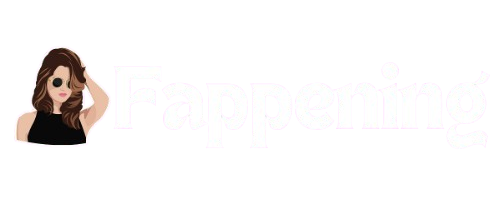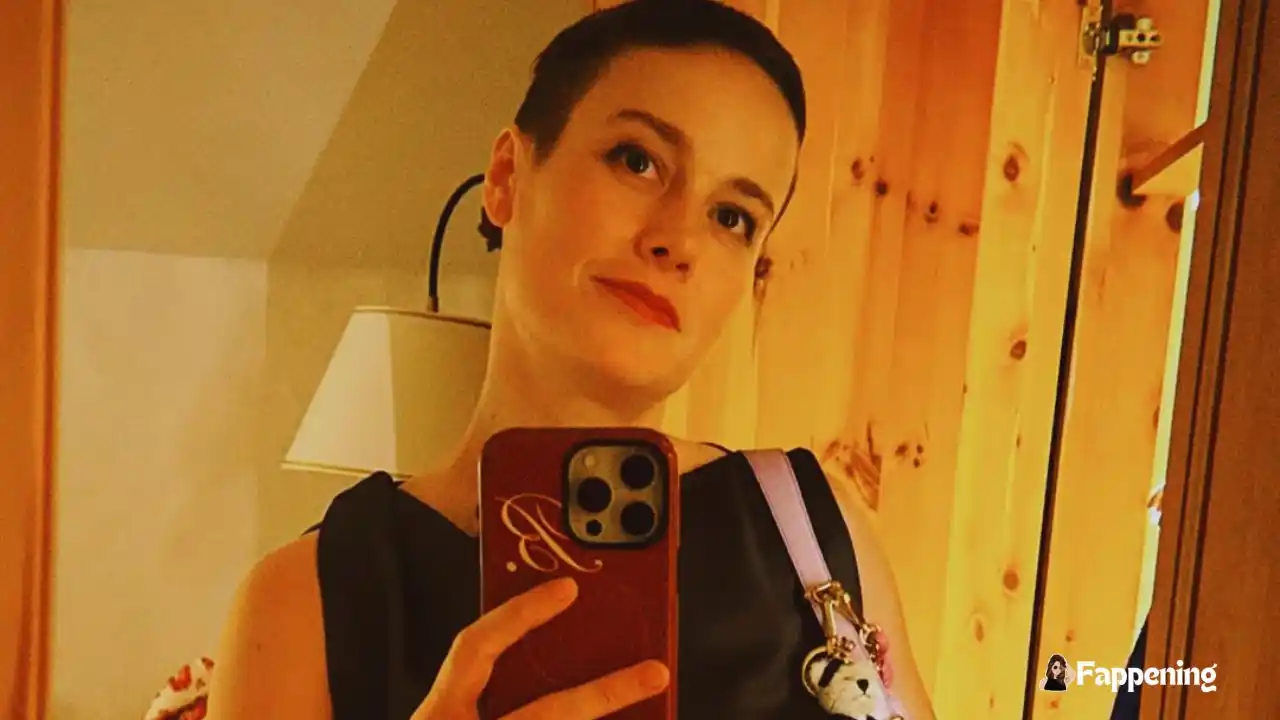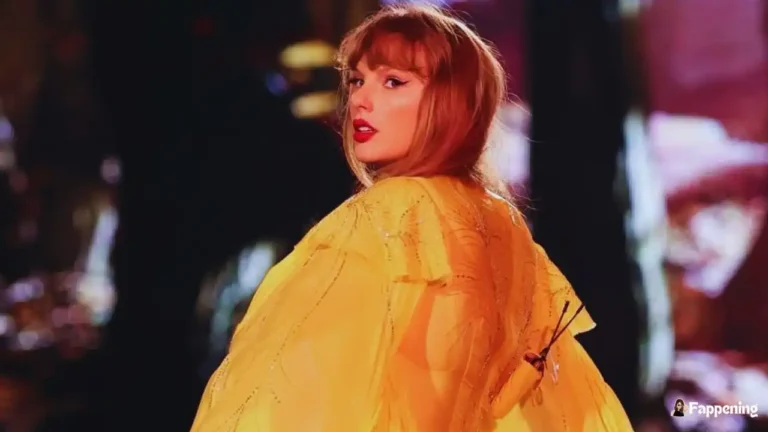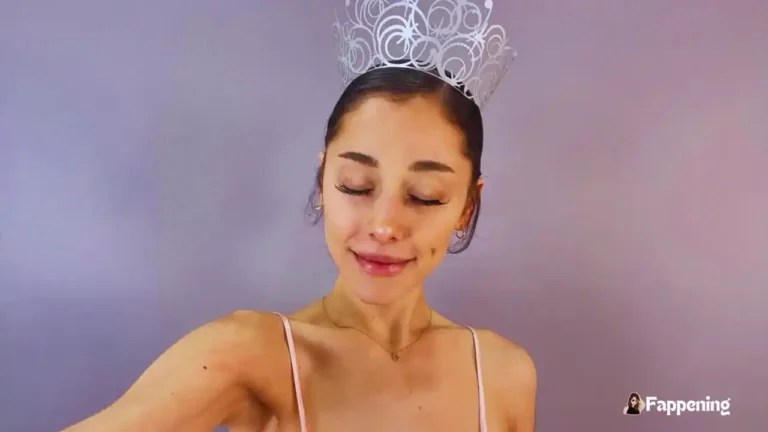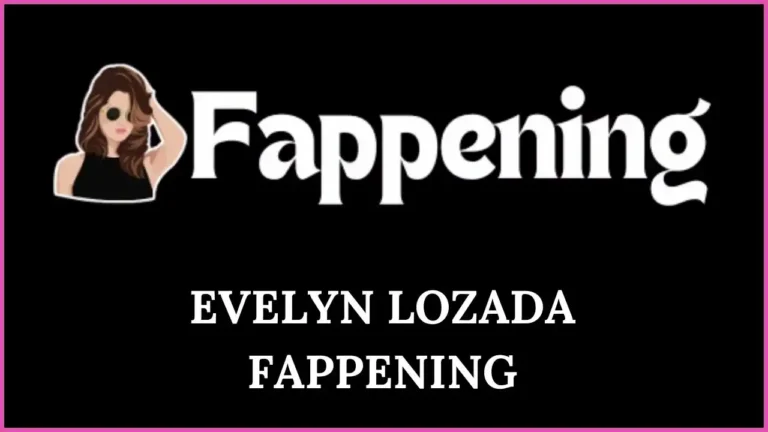Brie Larson Fappening Truth The Shocking Reality Behind the Buzz
Introduction
The internet thrives on controversy, and one of the biggest privacy-related incidents in modern history was The Fappening—a large-scale celebrity photo leak that took the digital world by storm. Among the many celebrities whose names have been associated with this event is Brie Larson. The term Brie Larson Fappening continues to surface in online discussions, with thousands of users searching for information on whether she was involved and what the truth behind the controversy really is.

The search volume for terms like “brie larson fappening” and “brie larson the fappening” remains high, proving that public curiosity about the event hasn’t faded over time. However, much of what circulates online is a mix of rumors, misinformation, and exaggerated claims, making it difficult to separate fact from fiction.
This article will provide a clear, fact-based analysis of the Brie Larson Fappening controversy, exploring the origins of the event, its impact on cybersecurity, and why it remains a widely searched topic even today. More importantly, we will uncover the truth behind the buzz and debunk myths that have clouded the narrative for years.
Read Also: Bethany Anne Lind Fappening
What Was “The Fappening”?
The term “The Fappening” refers to a massive leak of private celebrity photos that occurred in 2014, when hackers exploited vulnerabilities in Apple’s iCloud storage system to gain access to personal images and videos. The stolen content was then distributed on forums like 4chan, Reddit, and other dark web platforms, triggering a global conversation about privacy, cybersecurity, and the ethics of sharing such material.

How Were Celebrities, Including Brie Larson, Linked to It?
Hundreds of high-profile celebrities were allegedly affected by The Fappening, including Jennifer Lawrence, Kate Upton, Kirsten Dunst, and others. Their private photos were leaked online, leading to legal battles, increased security measures by tech companies, and widespread debates over digital privacy.
Brie Larson’s name frequently appears in search queries related to The Fappening, sparking curiosity about her involvement. However, the truth is more complex than online rumors suggest. Many names were wrongly linked to the incident due to fake content, deepfakes, and internet speculation.
The Impact on Privacy and Cybersecurity
The Fappening was a wake-up call for both celebrities and everyday internet users regarding the risks of cloud storage, weak passwords, and phishing attacks. Apple and other tech giants were forced to upgrade security measures, implement two-factor authentication, and educate users on how to protect their data from similar breaches in the future.
The event also raised critical ethical questions:
- Should people be searching for or distributing such content?
- What legal actions were taken against the hackers and those who spread the images?
- How has The Fappening shaped modern discussions around online privacy, data security, and digital ethics?
While many assume The Fappening was just another internet scandal, its long-term implications on privacy, cybersecurity, and ethical online behavior continue to be felt today.
Also Know: Ariana Grande Fappening
The Brie Larson Fappening Controversy

Why Is Brie Larson’s Name Frequently Searched in Connection with “The Fappening”?
Over the years, Brie Larson’s name has repeatedly surfaced in search trends related to The Fappening, despite little to no concrete evidence linking her to the 2014 iCloud breach. So, why does her name continue to appear in these discussions?
There are a few reasons:
- Search Engine Autofill & Trending Queries – When users search for high-profile celebrities in connection to leaked content, Google’s autocomplete suggestions often reinforce the association. Once a search term gains momentum, it becomes a self-sustaining loop, encouraging more users to look it up.
- Clickbait & Misleading Headlines – Some gossip websites and forums exploit celebrity names for traffic, even if the information is baseless. By using suggestive headlines like “Brie Larson Fappening: What You Need to Know”, they drive curiosity and increase clicks, regardless of factual accuracy.
- Deepfakes & Fake Content Circulation – The rise of deepfake technology has led to an increase in manipulated media, where unrelated images or fabricated content are falsely attributed to celebrities. Some users, knowingly or unknowingly, contribute to the spread of misinformation, further entangling Brie Larson’s name in these discussions.
- Association with Other Celebrities in The Fappening – Since Brie Larson shares the Hollywood spotlight with several confirmed victims of The Fappening, her name often appears alongside theirs in search results, leading people to assume she was involved.
Also watch: Alexandra Daddario Fappening Moments
Rumors vs. Verified Facts: Separating Truth from Fiction
A majority of the claims connecting Brie Larson to The Fappening are unsubstantiated and based on speculation rather than verified facts. Let’s break it down:
✅ Verified Fact: Brie Larson’s name appears in search trends and online discussions related to The Fappening.
❌ False Claim: There is confirmed leaked content involving Brie Larson from The Fappening.
✅ Verified Fact: The Fappening was a massive iCloud breach affecting many celebrities, but no credible evidence directly connects Brie Larson to the leak.
❌ False Claim: Online rumors and deepfake content serve as proof of involvement.
Despite the lack of credible sources, some websites and social media users continue to sensationalize and mislead audiences, fueling unnecessary controversy around Brie Larson.
How Internet Speculation Fueled Widespread Misinformation
The internet’s viral nature means that misinformation spreads faster than the truth, and The Brie Larson Fappening controversy is a textbook example of how rumors spiral out of control. Here’s how it happened:
- Initial Searches & Clickbait Articles – When The Fappening occurred, people actively searched for celebrity names linked to the breach. Clickbait websites capitalized on the trend by adding more names, including Brie Larson, without verification.
- Forum & Social Media Discussions – Platforms like Reddit, Twitter, and celebrity gossip forums amplified the controversy. Speculative posts, meme culture, and misattributed images created a distorted reality where even false rumors gained legitimacy.
- SEO Manipulation & Algorithmic Reinforcement – As more people searched for “Brie Larson Fappening”, Google’s algorithms prioritized the term, reinforcing the association even when the content lacked factual accuracy.
- Persistence of the Search Trend – Unlike news stories that fade over time, celebrity gossip and rumors continue to resurface due to sustained curiosity, new fans, and recirculation of old articles and videos.
Must Read: Kaley Cuoco Fappening
Debunking the Myths About Brie Larson in The Fappening
The internet is filled with half-truths, rumors, and outright falsehoods, especially when it comes to celebrity controversies. Brie Larson’s name has been repeatedly linked to The Fappening, yet much of this connection is based on misinformation, clickbait tactics, and manipulated content rather than actual evidence.
This section will fact-check the claims, analyze the role of deepfakes, and explain why Brie Larson the Fappening remains a frequently searched term despite the lack of any real connection.
Was Brie Larson Actually Affected? Fact-Checking the Claims
Many online sources falsely suggest that Brie Larson was part of The Fappening. However, a closer examination of verified sources, legal reports, and cybersecurity analysis reveals that:
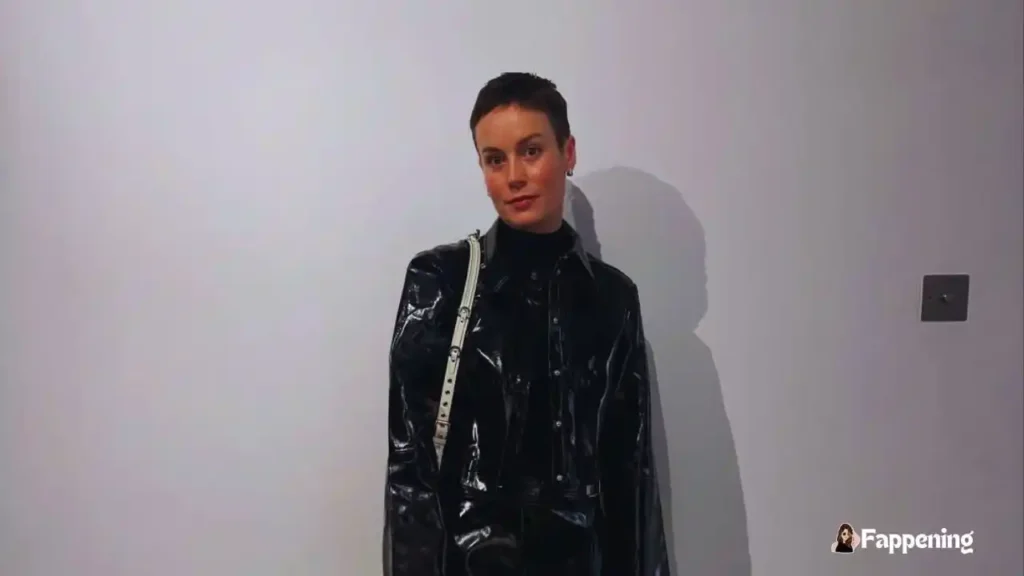
✅ Fact: The Fappening was a real event involving the illegal hacking of celebrity iCloud accounts in 2014.
❌ Myth: Brie Larson’s private photos were leaked as part of the incident.
✅ Fact: Many high-profile celebrities, including Jennifer Lawrence, Kate Upton, and Kirsten Dunst, confirmed they were victims of the breach.
❌ Myth: Just because a celebrity’s name trends in connection to The Fappening does not mean they were actually involved.
While some names, such as Jennifer Lawrence, openly addressed the leaks and pursued legal action, Brie Larson has never acknowledged or been confirmed as part of The Fappening breach. This means her association with the event is largely speculative and fueled by internet gossip, not factual evidence.
How Fake Content, Deepfakes, and Altered Media Contributed to the Confusion
One of the biggest reasons why “fappening brie larson” remains a trending search term is the widespread presence of fake and manipulated content. Here’s how misleading material has kept this controversy alive:
1. Deepfakes & AI-Generated Images
- The rise of AI-powered deepfake technology has made it easier than ever to fabricate explicit images and videos.
- Many websites and forums have circulated deepfake content falsely attributed to Brie Larson, further blurring the line between reality and fiction.
- Despite the lack of real leaks, deepfake content fuels speculation and contributes to ongoing search interest.
Check Also: Hope Solo Fappening
2. Clickbait & Sensationalized Headlines
- Many gossip sites use misleading titles to generate traffic, such as:
- “Brie Larson The Fappening: The Truth Exposed”
- “Fappening Brie Larson Leaks – What You Need to Know”
- These articles rarely provide factual evidence and often rehash the same rumors without any credible sources.
3. Photoshopped & Misattributed Images
- Some online users manipulate images and falsely claim them as “leaks” to gain views, shares, or engagement.
- Others take random, unrelated images and spread them as if they were part of The Fappening, leading to unnecessary controversy around Brie Larson.
4. Forum & Social Media Speculation
- Platforms like Reddit, Twitter, and image-sharing forums continue to discuss The Fappening, causing old rumors to resurface periodically.
- Misinformation spreads quickly, and even after debunking the claims, false narratives continue to persist.
Why the Misinformation Continues to Trend
Despite no verified leaks or legitimate sources confirming Brie Larson’s involvement in The Fappening, her name remains entangled in the controversy due to:
🔹 Algorithmic Reinforcement – Search engines prioritize trending queries, keeping “brie larson the fappening” visible in autocomplete suggestions.
🔹 Persistent Curiosity – New fans or internet users rediscover old rumors and search for them, reviving the trend.
🔹 Unethical Content Creators – Some intentionally exploit deepfake technology and misleading content for monetization and ad revenue.
🔹 Lack of Awareness – Many users believe everything they read online without fact-checking sources, allowing false information to thrive.
The Role of Media and Social Platforms in Spreading The Buzz
The Brie Larson Fappening controversy continues to trend, not because of actual evidence, but due to the massive influence of media platforms, social networks, and gossip blogs. These platforms amplify misinformation, recycle old rumors, and encourage speculation, keeping the topic alive for years—even when there is no legitimate proof linking Brie Larson to The Fappening.
In this section, we explore how news outlets, forums, social media, and search engine trends have fueled public curiosity and sustained the controversy.
How News Outlets, Forums, and Social Media Contributed to the Controversy
1. Sensationalized News Coverage & Clickbait Tactics
- The celebrity gossip industry thrives on attention-grabbing headlines, even when they lack factual basis.
- Many news sites and tabloid blogs deliberately publish misleading titles like:
- “Brie Larson Fappening: What You Haven’t Been Told”
- “Shocking Details on Brie Larson’s Leaks – What Happened?”
- These articles rarely provide evidence, yet they rank highly in search results, further reinforcing false associations.
2. Internet Forums & User Speculation
- Online forums such as Reddit, 4chan, and image boards played a massive role in the initial spread of The Fappening leaks.
- Even today, threads on these platforms continue to discuss old rumors, keeping the controversy alive.
- Many forum users:
- Ask if new content has surfaced (even when nothing exists).
- Reshare misleading deepfakes and falsely claim them as authentic.
- Use clickbait post titles to attract more engagement.
3. The Role of Social Media in Keeping the Buzz Alive
Social platforms like Twitter, Instagram, TikTok, and Facebook further contribute to the spread of misinformation by:
- Reposting old discussions – Even after being debunked, old posts and tweets continue to recirculate, leading new users to believe the rumors are recent.
- Viral Hashtags & Trend Exploitation – Users often create hashtags like #BrieLarsonFappening to get traction, manipulating search trends.
- Engagement-driven algorithms – Social platforms prioritize viral topics, meaning the more people engage with a rumor, the more it spreads—even if false.
The Role of Reddit, Twitter, and Celebrity Gossip Blogs
1. Reddit: The Birthplace of The Fappening Buzz
- When The Fappening first occurred, Reddit was flooded with leaks, discussions, and speculation.
- Despite Reddit banning certain subreddits related to The Fappening, archived threads and user-generated speculation still exist.
- Even today, people search for “brie larson the fappening” on Reddit, further sustaining the controversy.
2. Twitter: A Search Engine for Celebrity Scandals
- Twitter serves as a real-time discussion hub, where people continuously search for Brie Larson nude fappening and related terms.
- Sensationalized tweets and retweets amplify the reach of even old, debunked claims.
- Despite Twitter’s content moderation policies, misleading posts often go viral before they are flagged.
3. Celebrity Gossip Blogs: The Clickbait Machines
- Gossip sites like TMZ, Hollywood Life, and The Daily Mail capitalize on trending names, regardless of factual accuracy.
- Even when they don’t confirm anything, their vague headlines trick users into clicking, leading to higher search volumes and trend reinforcement.
- Many users searching for “fappening brie larson” are actually driven by these gossip blog articles rather than actual leaks.
How Online Users Search for ‘Brie Larson Nude Fappening’ and Its Impact on Search Trends
Even though no verified leaks exist, Google search trends show that users still actively search for terms like:
- Brie Larson nude fappening
- Fappening Brie Larson photos
- Brie Larson iCloud leak
Why Do People Keep Searching?
🔹 Curiosity & Misinformation – Many users assume the rumors are true because they’ve seen misleading forum posts.
🔹 Clickbait SEO Manipulation – Blogs and news sites intentionally optimize their content to show up in search results, making users think new updates exist.
🔹 Algorithmic Reinforcement – Google’s autofill suggestions keep showing these searches, tricking people into believing there is real content.
🔹 Resurfacing Old Topics – Whenever Brie Larson is in the news (for movies, awards, interviews), past controversies get revived online.
SEO & Search Trend Impact
- Because users frequently search for these terms, they continue appearing in Google Trends.
- This creates a self-sustaining loop where people search for something that doesn’t exist, further driving up search volume.
- As long as people keep engaging with misleading content, the controversy will never completely disappear from search engines.
Legal and Ethical Aspects of The Fappening
The Fappening was not just an invasion of privacy—it was a major cybercrime that led to arrests, lawsuits, and global discussions about online ethics and digital rights. While celebrities like Jennifer Lawrence publicly condemned the leaks, platforms like Google, Facebook, and Reddit had to decide how to handle the spread of the stolen content.
In this section, we will explore the laws surrounding leaked content, how major platforms responded, and the consequences for those spreading false or unethical material.
Laws Against Leaked Content and Privacy Violations
After The Fappening, governments and law enforcement agencies cracked down on cybercriminals involved in hacking and distributing stolen content. Some key legal aspects include:
- Computer Fraud and Abuse Act (CFAA) [USA] – The hackers responsible for The Fappening were charged under the CFAA, which penalizes unauthorized access to digital systems.
- Revenge Porn & Privacy Protection Laws – Many countries, including the USA, UK, Canada, and Australia, passed stricter laws against the distribution of private images without consent.
- Google’s Right to Be Forgotten [EU] – In response to growing concerns, the European Union allowed victims to request the removal of their images from search results under privacy protection laws.
- Civil Lawsuits – Victims of The Fappening sued websites that hosted their stolen images, forcing platforms to pay damages or remove content permanently.
Many major websites were forced to comply with takedown requests, but once an image or video is leaked, removing it from the internet entirely becomes nearly impossible.
How Platforms Like Google, Facebook, and Reddit Reacted
As The Fappening unfolded, tech giants were heavily criticized for their role in hosting, distributing, or failing to prevent the spread of private content. Here’s how they responded:
- Reddit & Twitter: Initially, subreddits and Twitter threads dedicated to the leaks gained millions of views, but after legal pressure, these platforms banned users and communities involved in distributing hacked content.
- Google: The company removed search results linking to leaked images, but SEO manipulation still allows users to find misleading information about “brie larson the fappening” and related searches.
- Facebook & Instagram: Both platforms flagged and removed posts containing explicit materials from The Fappening, reinforcing their strict content policies against hacked or non-consensual imagery.
While these actions helped minimize damage, they couldn’t completely erase the long-term impact of the leaks on public perception and search trends.
Consequences for Those Spreading False or Unethical Content
Those involved in hacking, distributing, or profiting from the leaks faced severe legal repercussions:
- Hackers Arrested – Several individuals, including Ryan Collins, Edward Majerczyk, and George Garofano, were convicted and sentenced for their roles in hacking celebrity accounts.
- Websites Shut Down – Multiple websites hosting leaked content were taken down, sued, or blacklisted from search engines.
- Defamation & Misinformation Consequences – Users and media outlets spreading false information about celebrities also faced legal threats, fines, or takedown requests.
Despite these consequences, misinformation continues to spread, keeping Brie Larson’s name tied to a controversy she was never involved in.
The Impact on Brie Larson’s Public Image and Career
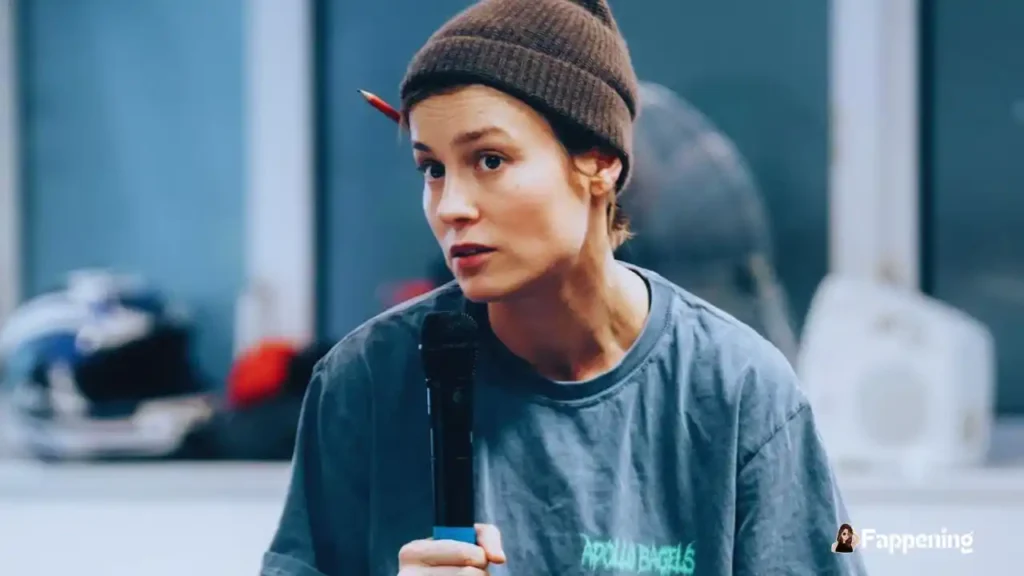
Did This Controversy Affect Brie Larson’s Hollywood Career?
Unlike other celebrities who were direct victims of The Fappening, Brie Larson’s career remained largely unaffected because she was never actually involved. However, the internet’s obsession with linking her name to the controversy has caused ongoing speculation and misinformation.
- Hollywood studios didn’t blacklist her – Brie Larson continued to land major roles, including Captain Marvel in the Marvel Cinematic Universe (MCU).
- No legal action was needed – Unlike celebrities who fought to remove their leaked content, Larson never had to take legal steps since no verified leaks existed.
- Public perception remained positive – Fans and industry professionals did not associate her career with the scandal, proving that the misinformation had little real-world impact.
How She and Her PR Team Responded
Brie Larson and her representatives never addressed the rumors directly—and for good reason.
🔹 Acknowledging false claims can sometimes give them more visibility.
🔹 Remaining silent allowed the controversy to fade in Hollywood, even if it continued online.
🔹 Larson focused on her work, activism, and social media presence, maintaining a strong public image.
What This Means for Celebrities and Online Privacy Today
The Fappening exposed the vulnerabilities of cloud storage and online security, but it also set a precedent for how celebrities handle digital scandals.
- Many celebrities now use encrypted services and enhanced cybersecurity measures.
- Social media platforms are quicker to take action against leaked content and misinformation.
- Public discussions on digital ethics have shifted towards respecting privacy and consent.
Even though Brie Larson was never actually affected, her name’s presence in search trends reflects the broader issue of internet misinformation and digital reputation management.
Why the Brie Larson Fappening Search Trend Continues
Despite years passing since The Fappening, people still search for terms like “brie larson nude fappening”. Why?
1. SEO Manipulation & Clickbait Articles
- Websites continue optimizing content around high-search-volume keywords to drive traffic.
- Even when articles debunk the rumors, they reinforce search trends by keeping the topic alive.
2. Google & Social Media Algorithms
- Google’s autofill suggestions still show searches related to Brie Larson and The Fappening, encouraging curiosity.
- Social media platforms keep resurfacing old discussions, reviving interest in past scandals.
3. New Generations of Internet Users
- As new Brie Larson fans discover her work, they may come across old rumors and search for details.
- This cycle keeps the controversy alive even though it has long been debunked.
4. Ethical Concerns: Should Users Search for This?
- Searching for non-existent or unethical content feeds an internet culture that thrives on gossip and invasion of privacy.
- Understanding the ethical implications of consuming, sharing, or spreading false information is crucial in the digital age.
Conclusion: The Truth Behind the Buzz
Real Facts vs. Misinformation Regarding Brie Larson in The Fappening
🔹 FACT: The Fappening was a real celebrity hacking scandal in 2014.
🔹 FACT: Brie Larson’s name appears in search trends related to it but without any real leaks.
🔹 MYTH: Brie Larson was personally affected by the scandal.
The Importance of Fact-Checking and Ethical Browsing Habits
With misinformation spreading faster than ever, it’s important to fact-check sources, question viral rumors, and avoid spreading baseless claims.
Final Thoughts: What This Case Teaches Us About Privacy in the Digital Era
The Brie Larson Fappening controversy is a case study in how online misinformation, SEO tactics, and viral media can distort reality.
- Celebrities are not immune to online reputation issues, even if they’re not directly involved.
- Search engines, media, and social platforms amplify rumors, making them hard to erase.
- As users, we must be mindful of the content we consume and share.
Brie Larson was never a victim of The Fappening, yet the internet keeps her name attached to the event. This proves that in the digital age, false narratives can persist indefinitely, unless we choose to break the cycle.
